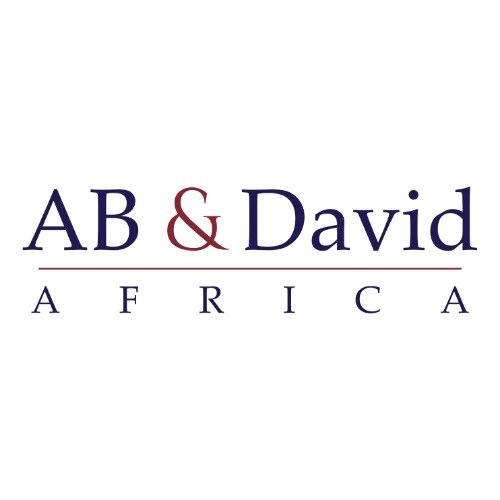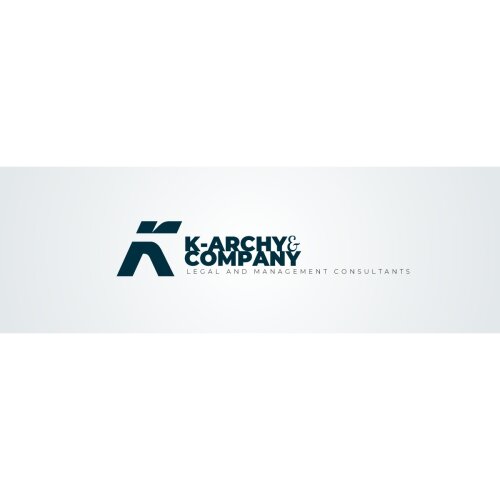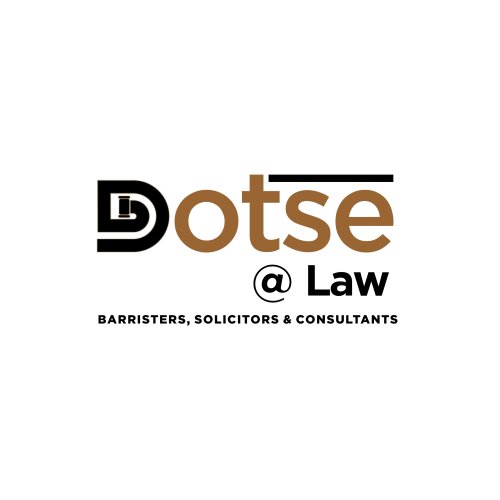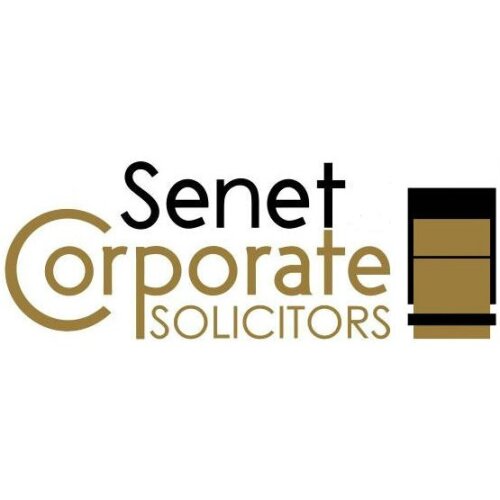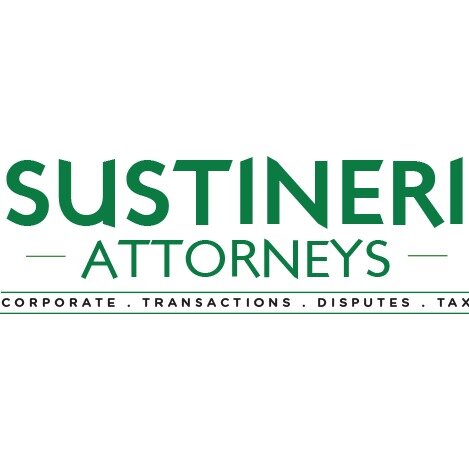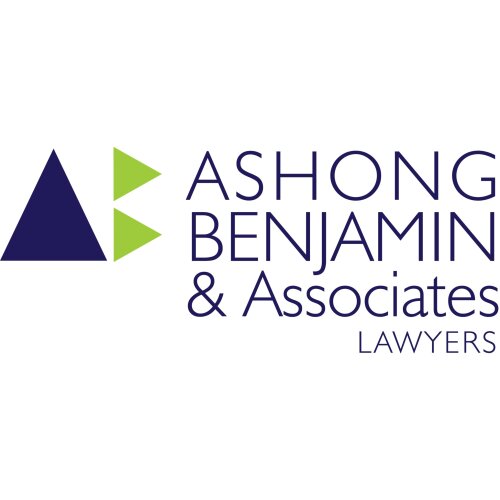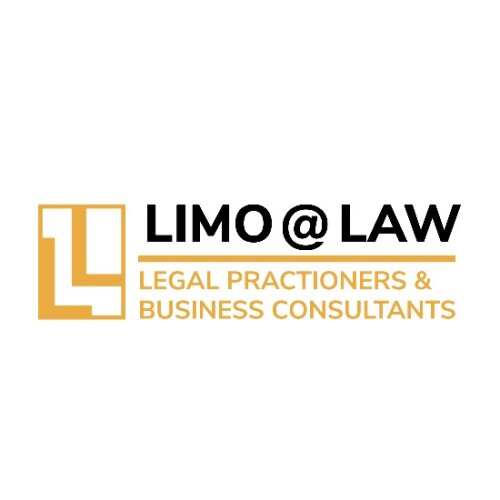Best Mining Law Lawyers in Ghana
Share your needs with us, get contacted by law firms.
Free. Takes 2 min.
Or refine your search by selecting a city:
List of the best lawyers in Ghana
About Mining Law in Ghana
Mining Law in Ghana governs the acquisition, development, management, and regulation of mineral resources within the country. The mining industry in Ghana is a key component of its economy, with minerals such as gold, diamonds, bauxite, and manganese being some of the top exports. The main legal framework for mining in Ghana is provided by the Minerals and Mining Act, 2006 (Act 703), along with associated regulations and guidelines. These laws regulate how minerals can be prospected, mined, processed, and exported, as well as how environmental and social considerations are managed.
Why You May Need a Lawyer
There are many reasons why you might need a lawyer who specializes in Mining Law in Ghana. Common situations include:
- Applying for or renewing mining licenses and permits
- Negotiating investment or joint venture agreements
- Resolving land disputes between mining companies and local communities
- Ensuring compliance with environmental and safety regulations
- Dealing with regulatory or governmental investigations
- Managing tax and royalty obligations
- Assessing and mitigating risks related to contract breaches or liabilities
- Understanding rights and obligations under mining contracts
- Handling export procedures and requirements
- Responding to claims of illegal mining or encroachment
A lawyer can provide valuable guidance and representation to help navigate the complex regulatory landscape and protect your interests.
Local Laws Overview
Ghana has a comprehensive legal and regulatory framework governing the mining sector. Some of the key aspects include:
- Minerals and Mining Act, 2006 (Act 703): The primary law governing mineral rights, licensing, environmental protection, and the rights and obligations of stakeholders.
- Mineral Rights: All mineral resources in Ghana are vested in the President on behalf of the people. Rights to explore or mine minerals can only be obtained through a license or lease from the government.
- Licensing Regime: There are different types of licenses such as reconnaissance, prospecting, and mining leases. Each has specific eligibility requirements and procedures.
- Local Content and Participation: The law encourages Ghanaian participation and often requires a certain percentage of local ownership in mining operations.
- Environmental Regulations: Environmental Impact Assessments are mandatory before mining activities can commence. Ongoing compliance with environmental guidelines is strictly enforced.
- Land Use: Mining may not commence without obtaining consent from landowners and payment of compensation, where necessary. Disputes over land use are common, especially in areas with customary land ownership.
- Taxes and Royalties: Mining companies are subject to taxation and required to pay royalties to the government based on mineral production.
- Small-Scale and Large-Scale Mining: Ghana distinguishes between small-scale (usually reserved for Ghanaians) and large-scale mining operations, with different regulations for each.
- Child Labor and Safety: Strict rules exist to prohibit child labor and ensure health and safety standards in mining activities.
- Dispute Resolution: The law provides avenues for resolving disputes, including through local courts, the Minerals Commission, and arbitration.
Frequently Asked Questions
What is required to obtain a mining license in Ghana?
To obtain a mining license, applicants must submit a formal application to the Minerals Commission, meet eligibility criteria, provide technical and financial information, and conduct an Environmental Impact Assessment. Approval from various government bodies is required before mining can begin.
Can foreigners own mining companies or licenses in Ghana?
Yes, foreigners can own mining companies and apply for licenses, especially for large-scale mining. However, certain licenses, like those for small-scale mining, are reserved for Ghanaian citizens. Additionally, there may be minimum capital requirements for foreign investors.
Do I need permission to explore for minerals on my own land?
Yes, all mineral rights are vested in the President of Ghana. Even if you own the land, you must still apply for a license from the Minerals Commission to explore for or mine minerals.
What are the main taxes and royalties applicable to mining companies?
Mining companies in Ghana are subject to corporate income tax, mineral royalties, and sometimes additional taxes like Value Added Tax. The royalty rate is generally a percentage of gross mineral revenue, as specified in the Minerals and Mining Act.
What environmental obligations do mining companies have?
Mining companies must conduct Environmental Impact Assessments before starting operations, comply with ongoing monitoring requirements, and implement measures to prevent environmental harm. There are penalties for non-compliance, including possible suspension of activities.
How is land compensation handled for mining activities?
When mining occurs on private or family lands, companies must negotiate compensation with landowners for the loss of land use or damage. Disputes over compensation can be settled through local authorities or the courts if necessary.
What is the difference between small-scale and large-scale mining?
Small-scale mining is typically reserved for Ghanaian citizens and covers smaller parcels of land with less complex operations. Large-scale mining allows for more extensive operations, usually with significant capital investment and may be owned by foreign entities.
How does the government regulate illegal mining (galamsey)?
The government has implemented strict measures against illegal mining, including law enforcement operations, confiscation of equipment, and prosecution of offenders. Legal mining must always be conducted with a proper license.
What steps should I take if my mining rights are being infringed upon?
If your mining rights are being violated, you should collect evidence of the infringement and consult a lawyer. You may submit a complaint to the Minerals Commission or pursue legal action through the courts.
How can disputes in mining activities be resolved?
Disputes can be resolved through negotiation, mediation, or arbitration. If these fail, the courts are available as a last resort. Parties are encouraged to seek legal advice to understand the best course of action.
Additional Resources
If you need more information or assistance, the following resources and organizations can help:
- Minerals Commission of Ghana: The primary regulatory body for mining activities, licenses, and compliance.
- Ministry of Lands and Natural Resources: Oversees policy formulation and regulation of the mining sector.
- Environmental Protection Agency (EPA): Handles Environmental Impact Assessments and ensures environmental compliance.
- Ghana Chamber of Mines: An industry body that supports mining companies and stakeholders.
- Legal Aid Commission: Offers legal assistance to individuals who cannot afford private counsel.
- Ghana Bar Association: Provides directories of lawyers, including those specializing in mining law.
- District Assembly: Assists with land and compensation matters at the community level.
Next Steps
If you believe you need legal assistance in relation to Mining Law in Ghana, consider the following steps:
- Document your situation and gather any relevant paperwork or correspondence.
- Identify the specific area of mining law you need help with, such as licensing, disputes, or compliance.
- Contact a qualified mining law lawyer or law firm with experience in Ghana’s mining sector.
- Consult the Minerals Commission for guidance on regulatory procedures.
- If cost is a concern, reach out to the Legal Aid Commission or non-governmental organizations for support.
- Prepare to discuss your case in detail and ask questions about your legal rights and options.
By taking these steps and seeking qualified legal advice, you can better navigate the complexities of Mining Law in Ghana and protect your interests throughout the process.
Lawzana helps you find the best lawyers and law firms in Ghana through a curated and pre-screened list of qualified legal professionals. Our platform offers rankings and detailed profiles of attorneys and law firms, allowing you to compare based on practice areas, including Mining Law, experience, and client feedback.
Each profile includes a description of the firm's areas of practice, client reviews, team members and partners, year of establishment, spoken languages, office locations, contact information, social media presence, and any published articles or resources. Most firms on our platform speak English and are experienced in both local and international legal matters.
Get a quote from top-rated law firms in Ghana — quickly, securely, and without unnecessary hassle.
Disclaimer:
The information provided on this page is for general informational purposes only and does not constitute legal advice. While we strive to ensure the accuracy and relevance of the content, legal information may change over time, and interpretations of the law can vary. You should always consult with a qualified legal professional for advice specific to your situation.
We disclaim all liability for actions taken or not taken based on the content of this page. If you believe any information is incorrect or outdated, please contact us, and we will review and update it where appropriate.
Browse mining law law firms by city in Ghana
Refine your search by selecting a city.





